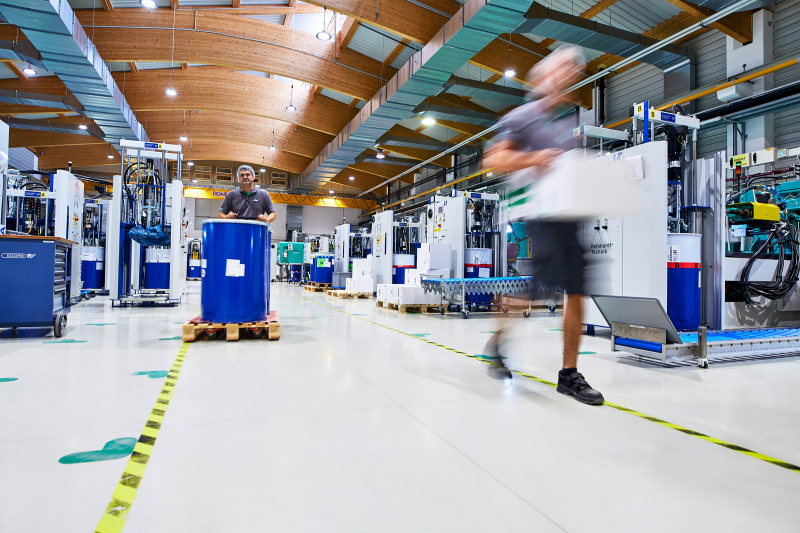Press release:
Integrating production and laboratory data

Integrating production and laboratory data
Digitalization extends beyond production at RICO
“We don’t just record production data for the sake of it, we also do something with them,” explains Alexander Widmayr, Head of Production at Austrian injection molding specialist RICO. The company draws practical conclusions from production batches, enhancing the development lab’s material database with production data. The outcome: more economical processes, improved production and fewer rejects.
Anyone can record data. But using them effectively is almost the ultimate test. Austrian injection mold manufacturer and silicone and multi-component part producer RICO uses high-efficiency data evaluation methods as part of a cross-departmental approach to fine-tuning its processes and material data.
Knowledge cycle – learning from each other the smart way
Every year, the company produces several billion elastomer parts and collates real-time data from all of its injection molding machines in a digital control console system. The data generated during production are combined with material measurement data from the development laboratory. This gives rise to a powerful knowledge database that benefits customers and suppliers alike.
“Bundling our knowledge internally allows us to maximize added value,” Widmayr says. “We know our production processes and the materials inside out, and we’re always learning, and that makes us a valuable development partner for our customers.” As a result, errors are reduced from the outset, processes can be represented more clearly, production is more efficient, deviations can be spotted at an earlier stage, and maintenance cycles are more plannable. “Data collection not only helps us to visualize and present figures and measurements; above all it enables us to constantly learn new things. And the lessons we learn benefit our customers,” Widmayr points out.
Accessible production data paint a clear picture
RICO uses a sophisticated system in order to deliver the right analysis at the right time and in the right place. All of its machinery is networked. The injection molding machines provide readings around the clock which are processed by the enterprise resource planning (ERP) system. The company has set the parameters for data analysis in accordance with its own requirements. “We’ve defined precisely what data we need and process. We don’t read everything, that’s why we don’t have a data graveyard,” explains RICO’s Head of Production. The company uses production specifications such as the number and quality of parts, data from equipment including material consumption and capacity utilization, and process-related indicators like process settings. RICO has full access to these results and can retrieve customer-specific data in an appropriate form at any time.
Material database in the lab
The results of material tests are recorded in the laboratory. Various measurement methods are used with raw materials and finished parts in order to gain information on mechanical and chemical properties. “We can work out how a material will behave or change during the injection process. Results of tests on finished parts regularly feed into our calculations. And we can factor these empirical values into the subsequent simulation, which in turn produces even better results,” according to Widmayr.
One step ahead
Serviceable data handling is a time-consuming task. But Head of Production Alexander Widmayr underlines its importance for RICO: “The insights we collect feed into our knowledge cycle. They don’t just disappear without a trace, we make good use of them to enhance RICO’s technology and our know-how. So RICO is always a step ahead.”





